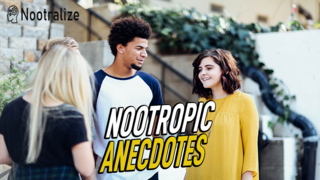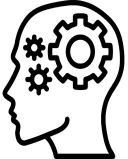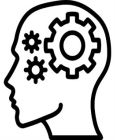Nootropics
Are Anecdotes Useful for Understanding Nootropic Effects?
Well-designed experiments are generally better than anecdotal stories.
Posted August 27, 2020 Reviewed by Kaja Perina

An anecdote is a personal story, often based on an experience of something that somebody had.
There are many reasons not to trust anecdotes as a source of evidence for your nootropic use decision-making. One reason is that they are often written in sensationalized ways to attract attention, and another one is the placebo effect.
Not all anecdotes are bad though. Systematically logged personal experiences of a nootropic can be good evidence for or against the efficacy or safety of that substance.
An anecdote that is less emotional and more logical, more data-driven and less subjective, is a relatively good piece of evidence. In fact, if collected in a scientific manner, it can be the best source of evidence possible for determining if a nootropic works for you.
It is important to note that subjective and emotional anecdotes can be useful for the individual person. If you feel great 3 hours after taking 500mg Ashwagandha, you should definitely not ignore the fact that you had those feelings. You should use it as a source of inspiration to experiment further and more systematically with Ashwagandha for you to over time arrive at the dose and frequency of use that will enable you to feel and perform at your best.
Some anecdotes are great sources of evidence because they’re stories with very detailed specifics about how a nootropic has worked for a specific person in a specific context. This can inspire more systematic self-experimentation in situations where there is very limited evidence available.
Some people have tried a lot of things that work for a lot of people for improving what they want to improve — but not for them. This inspires self-experimentation with nootropics with very limited amounts of high-quality human research. In such cases, anecdotes are often the best evidence available.
It’s obviously better to read a hundred people saying they used a substance for a couple of months with benefits and no side effects than not to have that information if you’re looking to try something with very little human evidence. However, you may not hear from the people who experience no effects or negative effects. We do not encourage experimentation with such underresearched substances but realize that people will use them anyways and want to help them use them as safely and effectively as possible.
When there’s better evidence available, such as placebo-controlled studies or a well-designed self-experiment that you’ve conducted on yourself, other people’s anecdotes are relatively useless.
Placebo-controlled Studies vs Systematic Self-Experiments
Placebo-controlled studies, preferably double-blind and randomized, are surely the best source of information to use to answer questions along the lines of:
- Is Bacopa Monnieri effective for me?
- Is Caffeine safe for me?
- Will Creatine help me think faster?
… right?
As regards questions of safety, you probably should trust placebo-controlled studies, especially if negative side effects were found. It is a sound principle to avoid substances that there’s evidence for serious negative side effects from in studies on humans if available, and in studies on animals if not.
But how about this situation. Let’s say you experience negative side effects from Lemon Balm. There’s essentially no scientific evidence for any negative side effects in humans from the use of Lemon Balm in appropriate doses. Should you listen to science instead of your body? No!
How about placebo-controlled studies versus self-experiments to determine the efficacy of a nootropic? Are studies necessarily better than well-designed self-experiments? No!
Placebo-controlled studies are a better method for arriving at the truth of the average effect of a nootropic in a large population of people. Well-designed self-experiments are the best method for determining the effects a substance will have for a specific person, such as you.
There’s a large degree of individual variance in how people respond to different nootropics. A placebo-controlled trial is not able to determine the efficacy of a nootropic for any specific person. It is able to determine the efficacy of a nootropic for the average person, an imaginary being which no real person is exactly alike.
You’re unique, and the effects you’re going to have from a nootropic is not exactly alike the effects any other person will have from that substance. While humans are similar in many respects, there is no way to get a definitive answer to whether a nootropic will work for you without trying it out for yourself.
Conclusion
Anecdotes are a relatively bad source of evidence since it’s biased by selective reporting, placebo, and sensationalization.
Placebo-controlled studies are a good source of evidence for determining the effects a nootropic is likely to have for the average person. They are a good source of information when you don’t know where to start with your nootropic self-experiments.
Well-designed scientific self-experiments are the best method for understanding the effects of a nootropic for any specific person, such as you.
This blog post was originally published at blog.nootralize.com, it is not a substitute for professional medical advice, diagnosis, or treatment.




